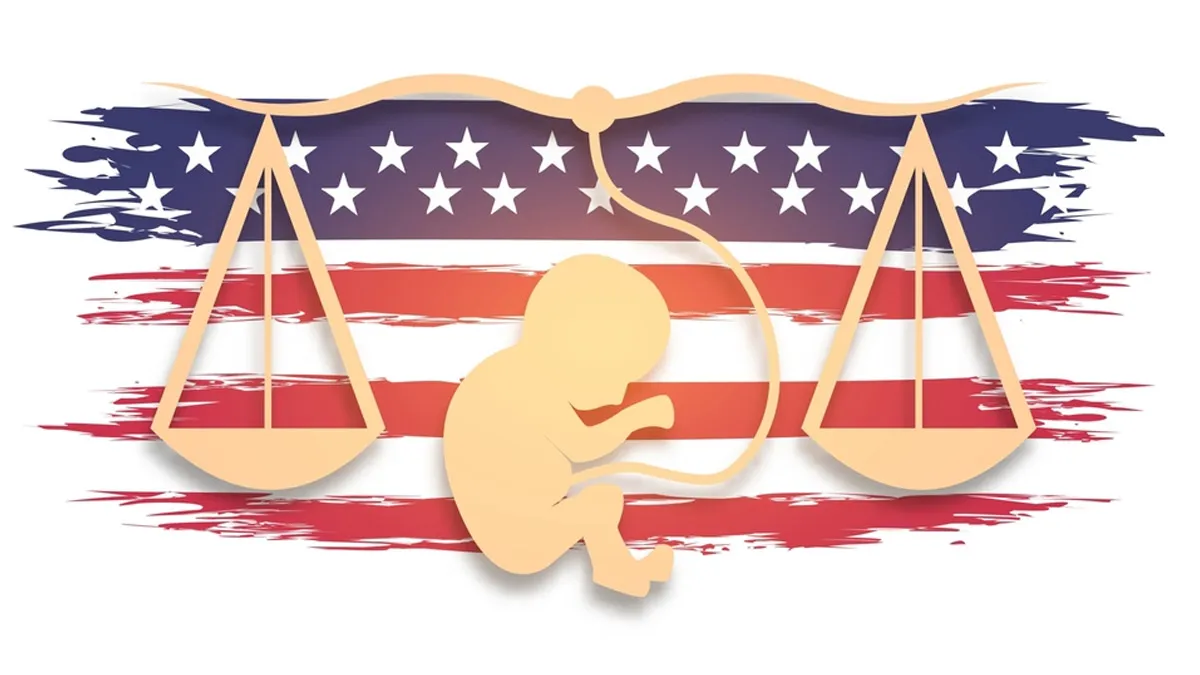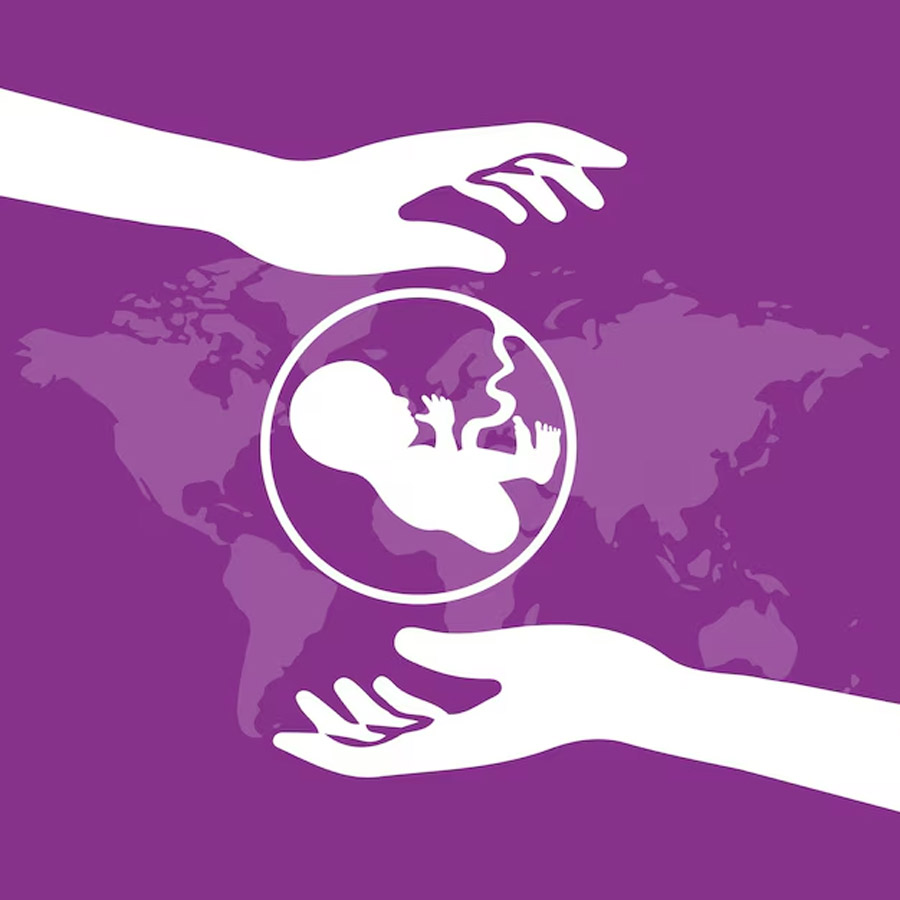
US Abortion rights are back in the spotlight, as a woman from South Carolina, Elisabeth Weber, was forced to carry a dead fetus for weeks due to the state's strict abortion laws. The case has sparked widespread outrage and calls for clearer medical guidelines under the current legal framework. The situation sheds light on the unintended consequences of anti-abortion laws in the US, particularly those that restrict access to healthcare when a pregnancy has ended in miscarriage or when the fetus is no longer viable.
View this post on Instagram
Elisabeth Weber's story began when her pregnancy ended, but the fetus still had no heartbeat. She went to her doctor and requested a Dilation And Curettage (D&C), a procedure that helps remove fetal tissue from the uterus after an abortion or any miscarriage. Despite the fact that the fetus was dead, Elisabeth Weber was told she could not undergo the procedure immediately because of South Carolina’s "heartbeat bill." This law prohibits most abortions once a heartbeat is detected, which typically occurs around six weeks into a pregnancy.
Because of the law’s ambiguity and the fear among doctors of facing legal consequences, Elisabeth Weber’s request for a D&C was refused. She was left to carry a dead fetus for weeks, experiencing severe physical symptoms and emotional distress. Elisabeth suffers from Hyperemesis Gravidarum (HG), a condition that causes severe nausea and vomiting throughout pregnancy. Even though her fetus had ceased to grow, her body continued to react as if she were still pregnant, leading to ongoing illness and physical decline.

“My body wasn't realising that I wasn't pregnant anymore. I was still totally bedridden with nausea, vomiting all the time”, Elisabeth Weber explained in an emotional Instagram post. In the Instagram video, she further shared, “My baby has been sitting inside me dead for three weeks already. And now I have to wait another week, knowing my baby is dead, to do anything about it.” She described the experience as agonising, both physically and mentally.
According to the Center for Reproductive Rights (CRR), “Most states repealed abortion bans in effect as of 1973 once Roe made them unenforceable. However, some states and territories never repealed their pre-Roe abortion bans. Now that the Supreme Court has overturned Roe, these states could try and revive these bans.”
Abortion bans that were enacted after the Roe v. Wade decision were designed with the intention of completely banning abortion, but only if the Supreme Court limited or overturned Roe, or if a federal constitutional amendment was passed to prohibit abortion.
National Institutes of Health (NIH) states, “In July 2022, the United States Supreme Court issued a decision in Dobbs v. Jackson Women’s Health Organisation that overturned Roe v. Wade, the Supreme Court decision that legalised access to abortion in the United States. The overturning of Roe v. Wade means women’s ability to choose to have an abortion or continue a pregnancy is no longer protected by the Constitution of the United States. Consequently, each state can now independently decide the legality of abortion.”
Some states criminalise people who self-manage their abortion, i.e., end their pregnancies outside of a health care setting.
According to the National Institutes of Health (NIH), “In the United States in 1973, the Supreme Court held that criminalising abortion violated a woman’s right to privacy and said that abortion should be a decision between a woman and her doctor. However, the court also held that US states have an interest in ensuring the safety and well-being of pregnant women, as well as the potential of human life.”
The Center for Reproductive Rights (CRR) states, “Laws that prohibit abortion before viability; these laws were unconstitutional under Roe. Gestational age is counted in weeks either from the last menstrual cycle (LMP) or from fertilisation.”
Laws that restrict certain abortion procedures often target methods like dilation and extraction (D&X) and dilation and evacuation (D&E).
Don't miss: Non-Consensual Unnatural Sex Between Husband And Wife Is Not Rape, Says Allahabad Court: Details Inside
This recent case from the US’s South Carolina has brought attention to the dangers of overly restrictive abortion laws, which some argue force women to endure unnecessary pain and suffering. Advocates for reproductive rights point out that such laws create a climate of confusion and fear within the medical community, discouraging doctors from offering timely and appropriate care.

South Carolina’s Fetal Heartbeat and Protection from Abortion Act (Heartbeat Bill), which passed in 2021, is part of a broader trend of states in the US tightening abortion regulations in the wake of the Supreme Court's decision to overturn Roe v. Wade in 2022. Many of these laws limit abortion access after six weeks, a point at which many women may not even be aware they are pregnant. While the intention of these laws is to protect unborn life, they often fail to account for the complexities of real-world medical situations like Elisabeth Weber’s.
Don't miss: Mother's Day 2025: 5 Speech Ideas In English To Make Your Tribute To Moms Extra Special
Reproductive rights advocates argue that these laws do not protect women; rather, they create dangerous barriers to essential healthcare. As in Elisabeth Weber’s case, such laws force women to delay necessary medical treatment, which can exacerbate existing health problems and cause irreversible harm. Many experts believe that doctors should have the discretion to make decisions based on the best interests of their patients, without fear of legal repercussions.
While the debate over abortion continues to divide the nation, it’s clear that laws these can have devastating consequences for women, especially when they prevent doctors from providing necessary medical treatment.
For more such stories, stay tuned to HerZindagi.
Image credit: Freepik
Also watch this video
Herzindagi video
Our aim is to provide accurate, safe and expert verified information through our articles and social media handles. The remedies, advice and tips mentioned here are for general information only. Please consult your expert before trying any kind of health, beauty, life hacks or astrology related tips. For any feedback or complaint, contact us at [email protected].